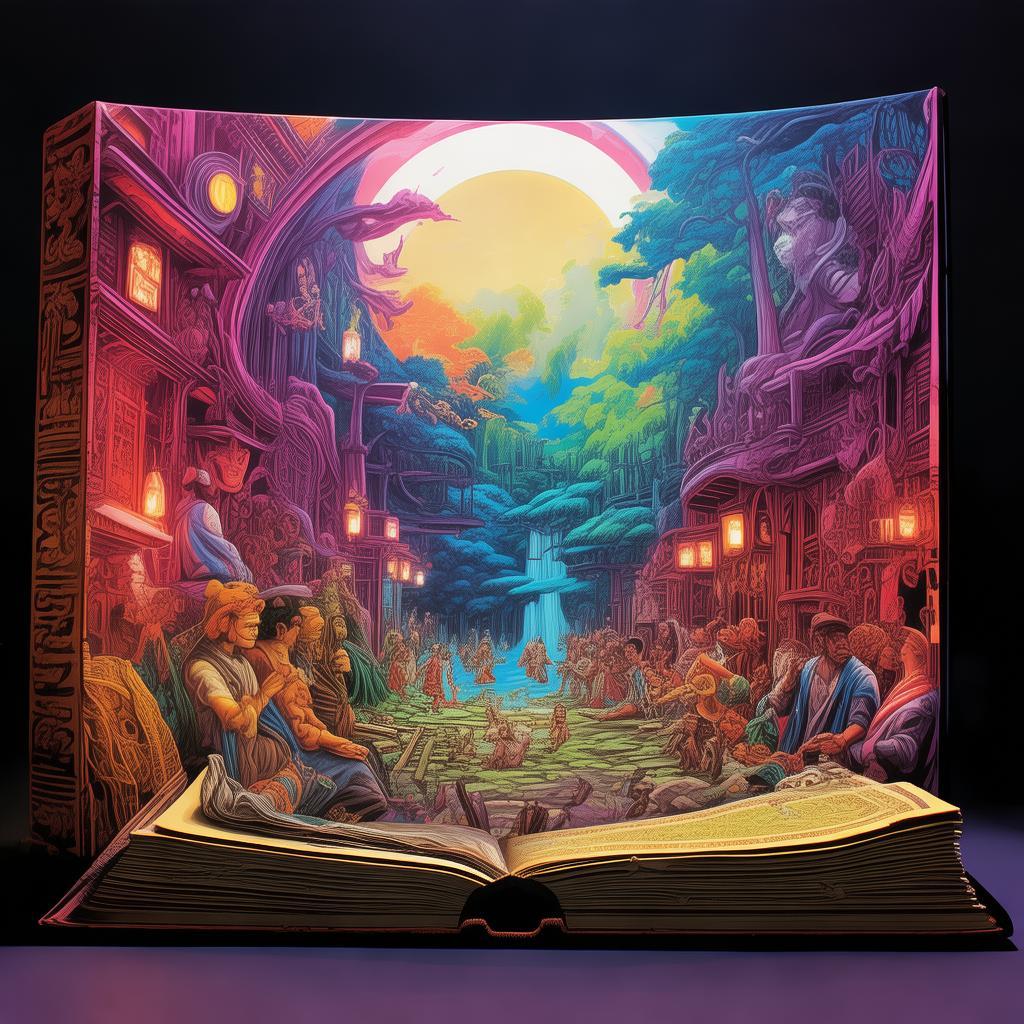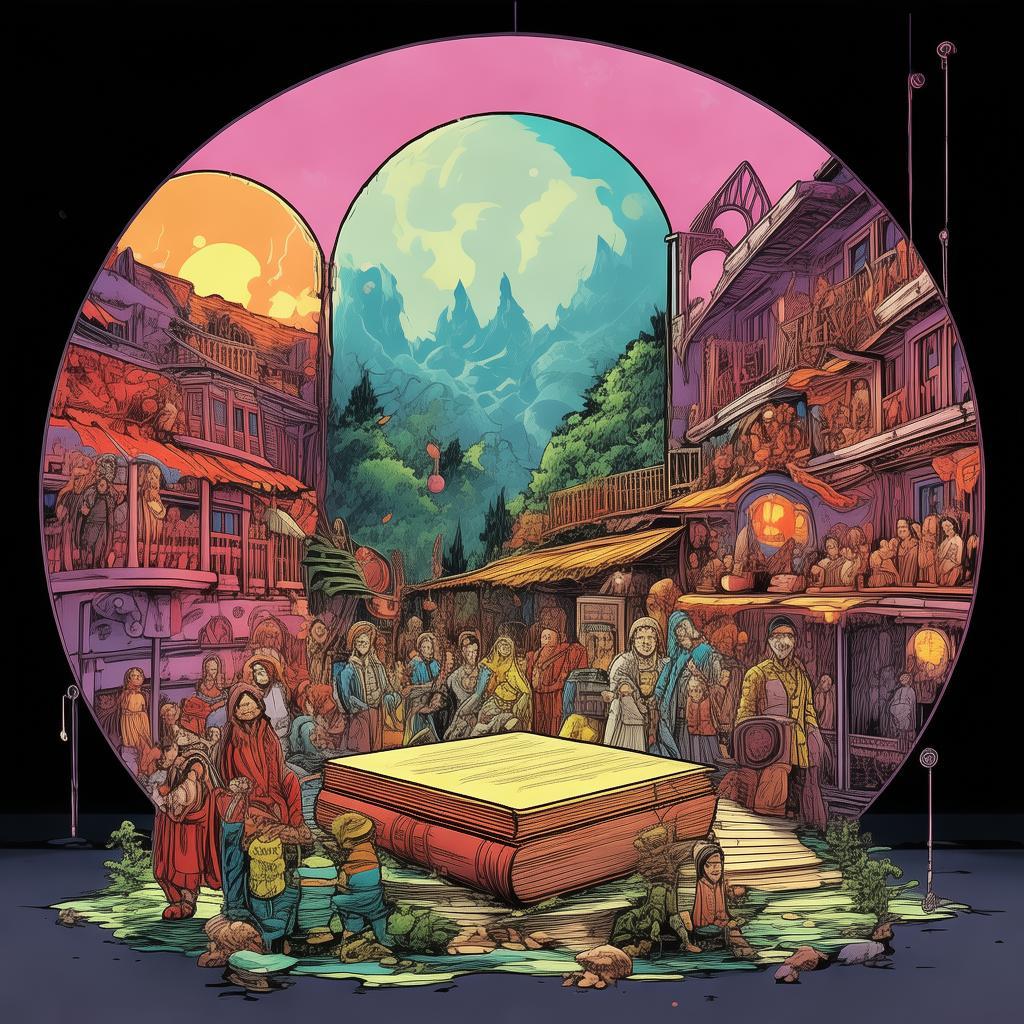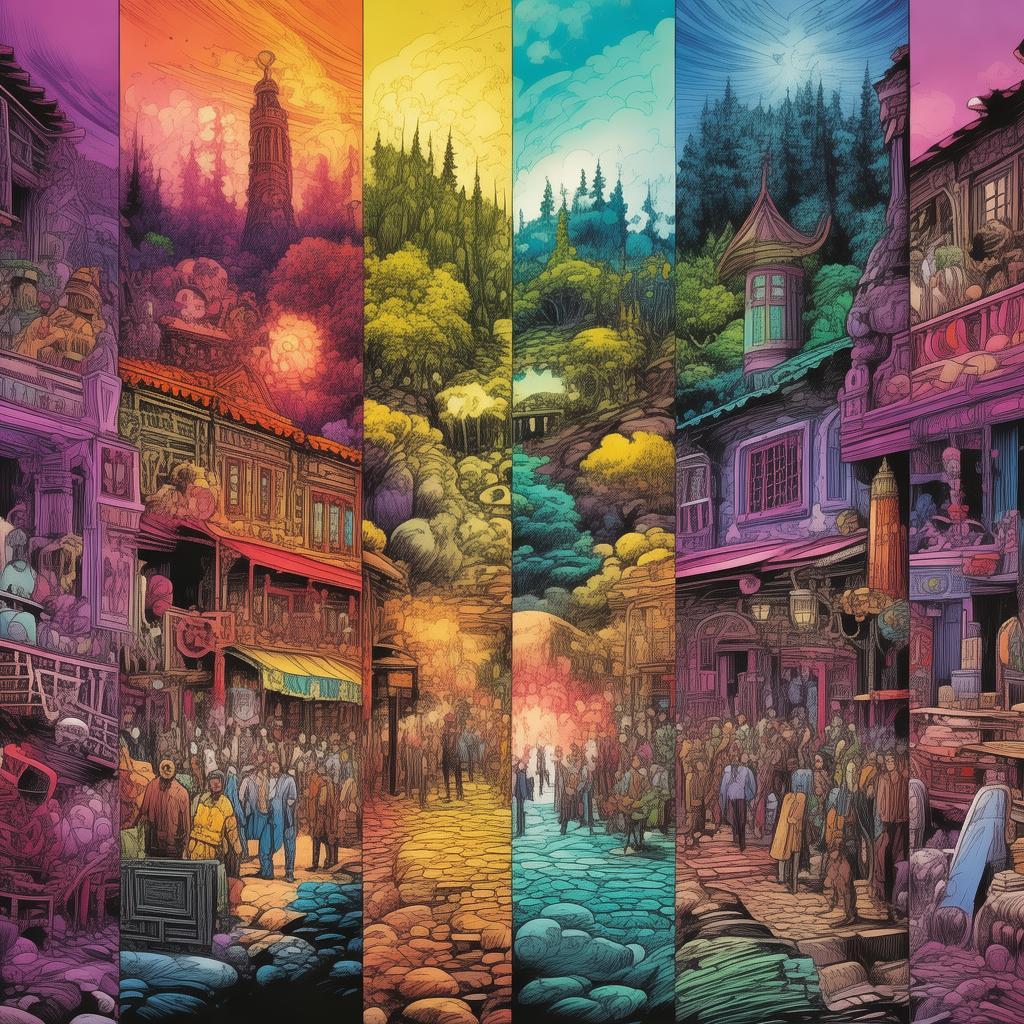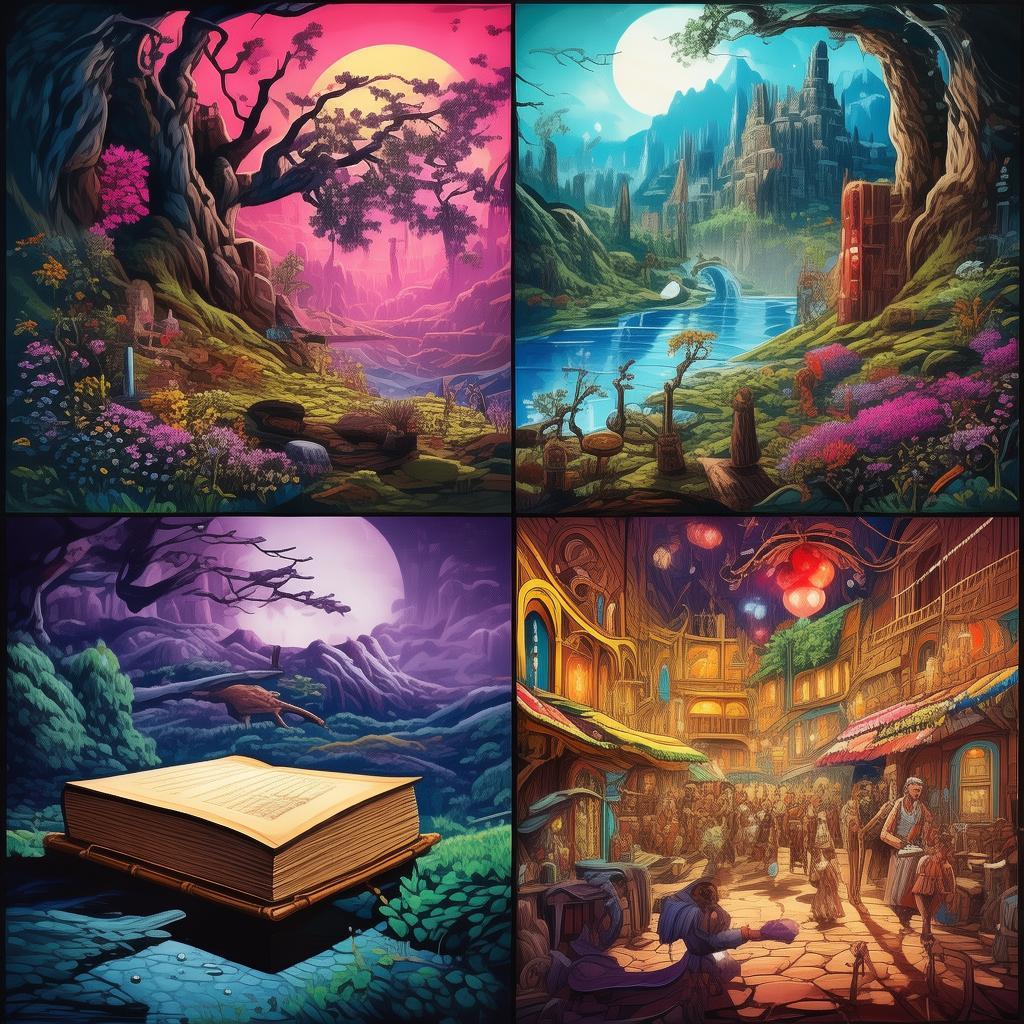The Last Shepherd of the Wandering Flock
In the heart of the untamed wilderness, where the roar of the wind and the whispers of the mountains spoke of ancient tales, there lived a shepherd named Elara. Her life was a tapestry woven from the threads of solitude and the love for her flock. The flock, once a harmonious blend of domesticated and feral sheep, had become a symbol of her own struggle: to bridge the gap between the wild and the tame, the natural and the artificial.
Elara's ancestors had been shepherds for generations, but her time was different. The world had changed, and with it, the very essence of the flock. The feral sheep, once a cherished part of the community, had become a threat, their wild nature a reminder of the chaos that lurked just beyond the village's walls.
The story begins with Elara standing before her flock, her heart heavy with the weight of responsibility. The village had grown weary of the feral sheep, and the tension between the villagers and the shepherd was palpable. "Elara, we need you to deal with them," the village elder's voice echoed through the fields, a command that hung heavy in the air.

Elara knew the time had come. She had spent years trying to domesticate the feral sheep, but they remained untamed, their eyes reflecting the wildness that lay just beneath the surface. "I will do what I must," she whispered to the flock, her voice a mixture of resolve and sorrow.
The journey into the wilderness was arduous. The feral sheep had learned to evade capture, and Elara's attempts to corral them were met with resistance. She followed them through dense forests, over treacherous cliffs, and across treacherous rivers. Each step brought her closer to the edge of her own endurance, but she pressed on, driven by a sense of duty and a deeper, more personal reason.
One evening, as the sun dipped below the horizon, casting long shadows across the landscape, Elara found herself in a clearing. The feral sheep were gathered around a small spring, their eyes reflecting the light of the fading day. In that moment, Elara felt a shift within herself. She had been fighting against the wildness, but now she understood that it was not a battle to be won, but a relationship to be nurtured.
She approached the flock, her movements slow and deliberate. The sheep watched her with a mix of wariness and curiosity. "I am Elara," she began, her voice soft but filled with a newfound strength. "I have come to understand that we are not enemies, but companions. You are part of this land, as much as I am."
The sheep hesitated, but then one by one, they began to approach her. Elara knelt down, her hands reaching out to touch them. The first touch was hesitant, but as she continued, the sheep responded with a gentleness that surprised her. They had been waiting for someone to see them not as a threat, but as part of the tapestry of life in the wilderness.
Days turned into weeks, and Elara's bond with the feral sheep grew stronger. She learned their patterns, their fears, and their joys. The village, once a distant concern, became a distant memory as she immersed herself in the rhythm of the wilderness. She discovered that the feral sheep were not a problem to be solved, but a part of the solution.
As the seasons changed, the flock thrived. The villagers, noticing the change, began to approach Elara with curiosity. "What have you done?" they asked, their voices tinged with both suspicion and hope.
Elara smiled, her eyes twinkling with the joy of discovery. "I have listened," she replied. "I have learned that the wild is not something to be feared, but to be cherished. The feral sheep are not a threat, but a reminder of the beauty and resilience of this land."
The villagers listened, their hearts softened by Elara's words. They began to see the feral sheep not as a problem, but as a part of the natural order. The tension between the village and the wilderness began to dissipate, replaced by a newfound respect for the balance of nature.
Elara's journey had not only transformed the feral sheep but also herself. She had found a new purpose, one that transcended the boundaries of her village and the limitations of her flock. She had become a bridge between the wild and the domesticated, a shepherd who understood that the true power of leadership lay not in control, but in understanding and respect.
The Last Shepherd of the Wandering Flock is a tale of hope, one that reminds us that the wildness within us is not to be feared, but embraced. It is a story of redemption, where the power of listening and understanding can heal even the deepest wounds of conflict and misunderstanding.
✨ Original Statement ✨
All articles published on this website (including but not limited to text, images, videos, and other content) are original or authorized for reposting and are protected by relevant laws. Without the explicit written permission of this website, no individual or organization may copy, modify, repost, or use the content for commercial purposes.
If you need to quote or cooperate, please contact this site for authorization. We reserve the right to pursue legal responsibility for any unauthorized use.
Hereby declared.









